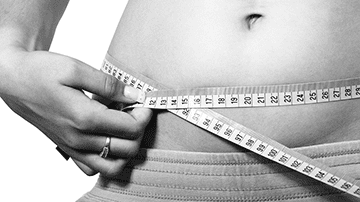Losing Weight 101 – Muscle weight vs. Fat weight
Did you start working out and notice the scale increasing instead of decreasing? Don’t fret – it’s entirely normal. Muscle is smaller in size but weighs more than fat. The weight you see on the scale is just a number – the quantity; it does not describe the body composition – the quality.
People can weigh more or appear to gain weight because of increased muscle mass. Depending on how much muscle mass you gain, you may actually lose inches around your waist – (making your clothes may fit better)
Fat cells and your health…
When you’re overweight, you carry around extra fat cells that lead to many health risks – increased blood pressure, diabetes and so on. Adding extra muscle cells does not increase your health risks. When you begin a resistance/toning routine, the inches come off faster than the weight, since you are building muscle.
Benefits of muscle gain
Consistent strength training has many benefits and can lead to a happier healthier life including:
- Increases your metabolism
- Slows the progression of osteoporosis
- Increases the body’s efficiency to store glucose
- Makes your body stronger
How much muscle is right for you?
It depends on your individual weight loss goals. The goal is decreased inches, increased strength – not big bulging muscles. A pound of muscle increases our metabolism by about 50 kcal per day. The average American should increase their muscle mass by 2-5 lbs to get toned, strong, and increase their metabolism.
At Body Bar MD, we focus on improving the quality and quantity of your body composition. You’ll get individual recommendations of how much muscle you should have and how to reach that goal. This combined with diet and other healthy lifestyle changes, will improve any existing health problems and prevent developing new ones.
Remember, regardless of what the scale says – muscle is your friend.




